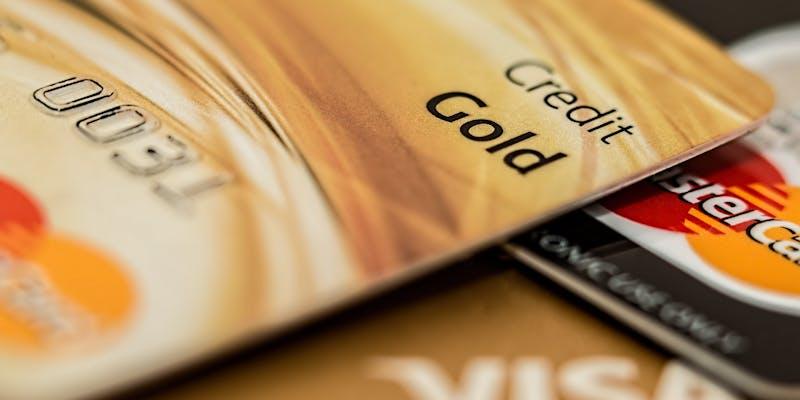Has it ever happened to you that you used your credit card for a purchase and it was denied? Well, it appears that's common. News reports blamed the pandemic for millions of Americans' credit card limits being cut or accounts terminated in 2020 and 2021. Managing your account carefully can help you avoid cancellation cards, although card closures can still happen. To make matters worse, a card issuer doesn't even have to warn you before closing your account. These are a few possible reasons why your credit card company may close your account suddenly; lets discuss them.

Not Using Your Card
If you have numerous credit cards, you might be using one or two more than others. It's common for a credit card to sit idle due to your purchasing habits or other card perks. Strategic credit card use can help you manage your money and maximize rewards, but it also hurts card issuers, especially if the card has no annual fee.
Active accounts have money for card issuers through interest or merchant transaction fees. Dormant cards don't generate these revenues. You can not pay to keep the card, but the issuer loses out on prospective revenue. The card issuer has given you credit, but without use, it doesn't help their business. To reduce losses and avoid cancellation cards, a card issuer may terminate an unused account.
Rejected New Terms
The issuer can have altered the card terms, but you rejected them, which is a common reason for credit close-up. You may have chosen a card because its rewards program seemed to outweigh its annual cost. Also, the issuer can adjust terms after your first year. For instance, the yearly charge could rise. If you reject these new terms, your account can get closed.
The Credit Card Accountability Responsibility and Disclosure (CARD) Act requires card issuers to notify you of significant changes, which may include higher late payment or cash advance penalties. It must give you 45 days' notice and let you opt-out if you don't like the modifications. If you opt out, the card issuer can close your account. Other adjustments, like raising your minimum payment, require early notice but no opt-out. The law requires no advance notice to close your account.
You Violated Card Terms
An active credit account requires compliance with its terms. Keeping your account in good standing requires making the minimum payment by the due date. Repeated late payments can alert credit card issuers, who are attentive to payment habits. Payment delays lower your credit score and warn the issuer that operating your account may be risky.
If you bounce checks or have frequent payment reversals, the issuer may review your cancellation cards. If the issuer finds your financial management untrustworthy, they may close your account. Thus, following the payment schedule and maintaining smooth payments are crucial to avoiding account closure. Your financial responsibility and trustworthy payment history help your card issuer stay satisfied with your account management. This proactive approach will prevent account closures and protect your credit.
Stopped Paying
If you stop paying, you might expect a credit close-up. Make the minimum payment by the due date each month to keep your account in good standing and avoid serious penalties.
You must make the minimum payment even if you have an introductory APR offer and aren't incurring interest. Failure to do so can result in late penalties, credit score deterioration, and get closed. Credit card issuers record payment history to credit agencies, and late or missed payments can hurt your score. Unpaid accounts can lead to higher interest rates, collection tactics, and legal action.
Make your minimum payment on time to keep your account and credit score healthy. To avoid missing due dates, set up recurring payments or reminders and check your bills for balance and payment status. These measures help you appropriately manage your credit card and avoid missed payments.

Card is Discontinued
When a credit card provider discontinues a product, various results are conceivable. Often, existing cardholders can maintain their cards and use the benefits, but new applications are not approved. In this case, current users cannot lose their perks or account status.
Sometimes, a new card product replaces a discontinued one. Before transferring your account balance and privileges to the new card, the issuer usually converts your old one. These cancellation card transitions let you use your credit card with new features or benefits to keep it working. The issuer may close all discontinued card accounts seldom. Cardholders would have to pay off their balances and get new credit. This is more typical with cobranded or retail credit cards related to specific partnerships and less often than card account continuation or conversion. Discontinuing a product seldom disrupts credit card usage, with the first two consequences being more likely than account termination.
You No Longer Qualify for the Card
A sudden and large credit profile change could result in the closure of your credit card account. A major change in your credit reports or finances can cause this unforeseen predicament. For instance, a missed loan payment could lower your credit score, causing your cancellation cards issuer to reevaluate your trustworthiness. Even if your account is in good standing, the issuer may close it as a precaution due to this risk profile change.
Note that not all modest credit changes result in account closure. Credit card providers prefer to lower credit limits rather than delete accounts. This technique decreases risk while maintaining credit availability. Account closure may occur if your credit profile changes significantly or for a lengthy time. Manage your credit properly and handle any concerns that could hurt your creditworthiness to avoid such outcomes.
How to Avoid Account Closures
Avoiding cancellation cards requires solid credit card habits. This includes:
- Make frequent card purchases.
- Make your monthly minimum payment on time.
- Do not aggressively hunt welcome bonuses/churn cards.
- Avoid purchases that violate card terms.
- If you suspect missing a payment, notify your issuer.
- Accept the chance to select a new card that fits your demands and lifestyle.







